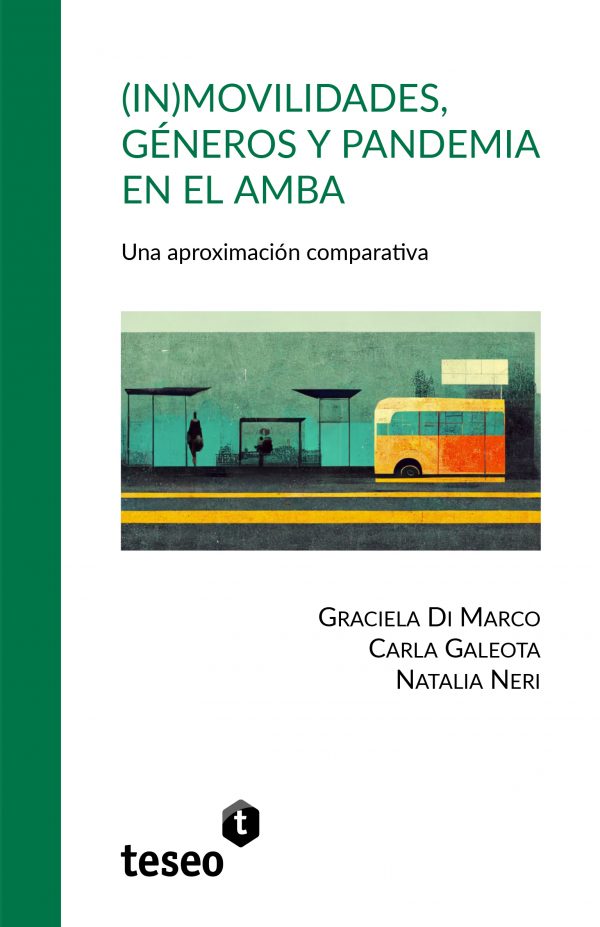The research whose results are presented here consisted of a study of women’s (in)mobility in the AMBA from a human rights, gender equality and right to the city perspective. We analysed the travel strategies and practices of women from poor neighbourhoods to go to work, to take their children to education, childcare and health centres, and for everyday needs, before and during the pandemic. Some of the questions that guided the research were: what were women’s travel practices like before the quarantine, how did the restrictions affect the mobility of vulnerable women on public transport, and what strategies did they develop to cope with this situation?
Simultaneously, women’s and men’s public transport transactions were also analysed before and during the quarantine. This was done by processing and analysing the large volumes of public transport data recorded by the Sistema Único de Boleto Electrónico (SUBE).
Graciela Di Marco holds a PhD in Social Sciences (UBA) and an Honorary Doctorate from the National University of Misiones. She is Professor Emeritus at the School of Humanities (National University of San Martín, UNSAM) and directs the Centre for Studies on Democratisation and Human Rights, and the Master’s Degree in Human Rights and Social Policies at the same university.
Carla Galeota is an architect with postgraduate studies in Urban Economics (UTDT) and Transport Planning (Leeds). She has more than 20 years of experience as a consultant in urban mobility.
Natalia Neri holds a degree in Geography from the UBA and is a specialist in Transport Management and Planning from the UNSAM. She is a lecturer and researcher at the Institute of Transport of the UNSAM. Currently, she is manager of Collective Transport of Passengers in CABA.











